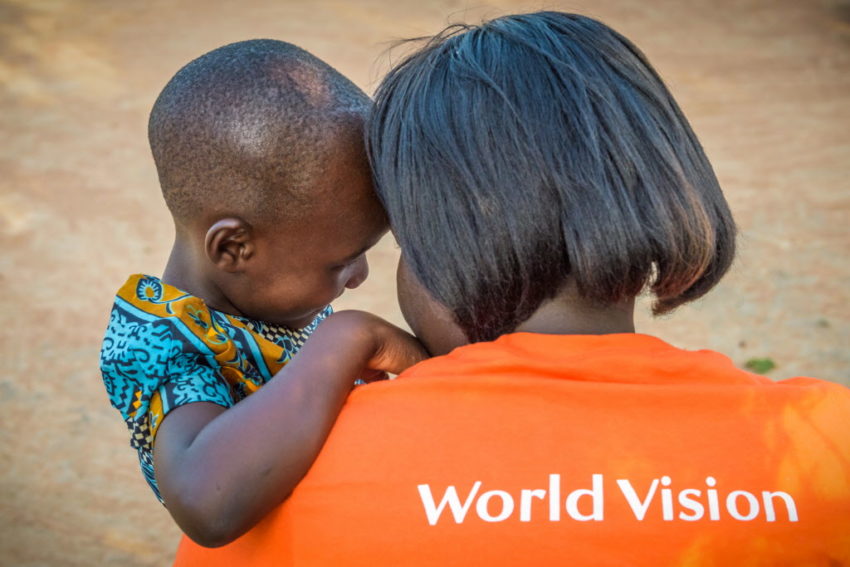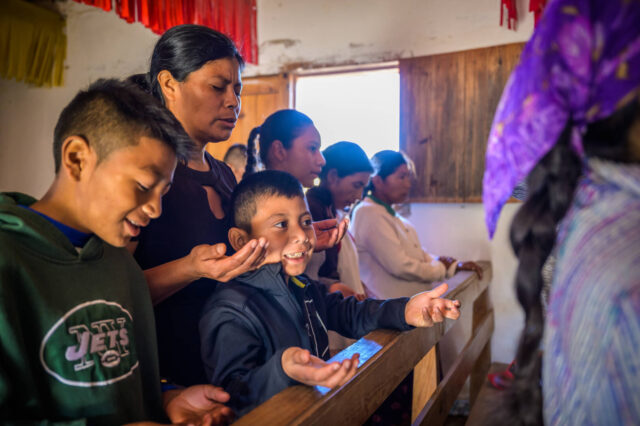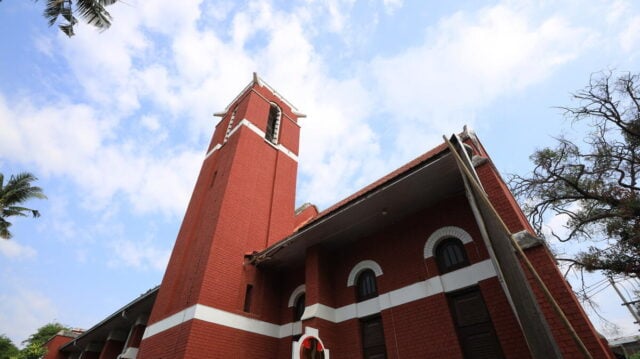World Vision has helped impact millions of lives through transformational gifts from philanthropists — evidence of God’s faithfulness. Today, more families have access to clean water along with new hope for healthy futures. Parents are better equipped to earn incomes that meet their children’s basic needs. Children are protected and nurtured, while they are growing in their Christian faith. A new day is dawning for a generation of people.
In the last 20 years, the number of children dying from preventable causes — from hunger, poverty, and disease — has nearly halved, going from more than 30,000 a day to under 15,000. The number of people living in extreme poverty, those living on less than $1.90 a day, has dropped by more than 1 billion.
For the first time in modern history, the world is coming to the collective realization that it is possible to end extreme poverty in our lifetimes. And you can be part of it.
Big gifts, exponential impact
Supporting the 2030 Sustainable Development Goals, World Vision is dedicated to keeping this momentum going to help end extreme poverty in all its forms, everywhere, by 2030. Driven by a $40 million gift to its water programs by Dana and Dave Dornsife — which Forbes magazine and The Bridgespan Group ranked as one of the top five most promising philanthropic big bets for social change — World Vision announced in September 2015 a commitment to reach everyone, everywhere we work with clean water by 2030.

“I really get excited at phrases like ‘end poverty by 2030’ and ‘clean water everywhere we work,’” says Laura Abernathy, a World Vision donor partner. “Those big goals may sound like publicity, but when you learn about World Vision and the strategies they have in place, you have faith. I’d hate that to be the headline in the news and not have been part of it.”
Audacious ventures are challenging, but history shows we can succeed.
Together, we have impacted the lives of more than 200 million vulnerable children by tackling the root causes of poverty. From 2010 to 2015, World Vision’s first capital campaign raised nearly $538 million and reached nearly 26 million people. That’s more than 500 people every hour for five years.
Now, World Vision is the leading nongovernmental provider of clean water in the developing world. Every 60 seconds, a family gets access to clean water, a hungry child is fed, and a family receives the tools to overcome poverty.
This incredible success took significant transformational gifts from philanthropists, corporations, and foundations; hundreds of millions of dollars in government grants; more than 60 years of experience in sustainable global development; and scale — more than 42,000 staff working with communities worldwide in nearly 100 countries. Learn the stories of some of World Vision’s generous donor partners:
- Betsy King and Debbie Quesada, Golf Fore Africa — $10 million toward water, sanitation, and hygiene in Africa
- Robin and Stu Phillips, retired lawyer and retired chairman of the board and principal owner of a neurological rehabilitation center — $10 million toward economic empowerment
- Laura and Robert Abernathy, retired nurse and retired healthcare CEO — $6 million toward mother and child health
- Dan and Aimee F., financial industry — $1.7 million toward emergency relief and fragile contexts
- Cody Nath, president and CEO of Refined Technologies Inc. — $1.1 million toward water, sanitation, and hygiene in Honduras
- David Grizzle, aviation consultant and retired Chief Operating Officer for the Federal Aviation Administration — “One of the best investments you’ll ever make”
A 2017 Bridgespan study of 15 of the greatest social impact stories of the 20th century reveals the majority of initiatives took at least 20 years to achieve success and involved at least one philanthropic investment of $10 million or more.
“World Vision has the proven methods we know will help end extreme poverty in our lifetime, the community development model that allows these systemic social changes to last after we leave, and the scale to reach millions upon millions of people with this God-honoring work,” says Chris Glynn, senior vice president of Transformational Engagement at World Vision. “Large philanthropic gifts are the catalyst that drives us to achieve maximum impact.”
You + World Vision’s local staff = help, hope, and love to people in nearly 100 countries.

Betsy King and Debbie Quesada, Golf Fore Africa
- Investment: $10 million toward water, sanitation, and hygiene in Africa
- Results: Water projects from this investment are estimated to bring clean water to 200,000 people.
Check World Vision out, but don’t wait. The time is now. You won’t regret it. Whatever commitment you come up with is worthwhile. It’ll not only change the world but change you.—Betsy King, World Golf and LPGA Hall of Famer
Professional golf is a male-dominated sport, and for World Golf and LPGA Hall of Famer Betsy King, she can point to golf as the source of the only discrimination she has ever experienced. Growing up, she wasn’t allowed to play on the boys’ golf team. Then as a professional golfer, the money she made was only a fraction of what the men made for equal work.
Recognizing that her financial situation is much different from other women around the world, 62-year-old Betsy says, “I can understand the discrimination women experience. So it’s very important to me to help eliminate it.”
Based on this conviction, Betsy’s retirement from the LPGA tour was anything but a retirement. In August 2005 after 28 successful years and 34 tournament wins, including six major championships, she began a journey to create her own nonprofit, a journey culminating with a goal of raising $10 million over the next five years to help World Vision reach everyone, everywhere we work with clean drinking water by 2030.

After her first trip to Africa in 2006 with World Vision to see the impact of poverty and HIV and AIDS on women and girls, Betsy founded Golf Fore Africa in 2007 to link her passion for golf with her compassion for children. Over the next 10 years — with the help of an expanding network of advocates, volunteers, and staff — Golf Fore Africa raised more than $6 million, the majority of which has provided clean water to children and families in Africa. This work is helping to lessen the 200 million hours that women and girls spend daily walking for water for their families.
“The biggest impact I’ve seen is lives changed and livelihoods improved. Healthier children and healthier families,” Betsy says. “I’m pleased with the investment because from back when we first went in 2006 to now 2018, I’ve seen huge improvements. There’s still a lot of work to do, but I’ve seen extreme poverty getting closer to being eliminated. That’s really what we care about — impacting the lives of children.”
Walking alongside Betsy in this journey is Debbie Quesada, president and CEO of Golf Fore Africa, who traveled with Betsy on that first Africa trip to Rwanda, Kenya, Tanzania, and Zambia in 2006 and helped Betsy launch Golf Fore Africa.
“We were so impacted by what we saw,” says Debbie, 55. “We came back knowing we could do something.”
Betsy wholeheartedly agrees. She says, “We felt a responsibility. God doesn’t allow you to see something like that and then do nothing.”
Partnering with World Vision was an easy next step. Debbie grew up knowing about World Vision; her grandparents were child sponsors. Betsy had already been partnering with World Vision since 2001, and the pair had already worked together to run an online auction of memorabilia donated by professional golfers, with the proceeds benefiting World Vision.
Betsy and Debbie partnered with World Vision not only because of history, but also because of its scale, scope of work, holistic approach to community development, and emphasis on stewardship.
“World Vision is best at what they do,” Betsy says, “and they have a heart for what they do.”

Since 2001, Betsy and Debbie have each taken close to 20 trips to see World Vision’s work — to see “children given the opportunity to actually be children. To enjoy life in all its fullness. To play. To learn. To not have the burden of fetching water every day,” Debbie says.
They’ve seen the impact not only on children but on families as well.
“There’s dignity when you can provide for your family. It makes you feel good about yourself as a mother or father to be able to care for your children,” Debbie says. “As parents, to be able to give that to your children — it means so much. Then they start caring about their neighbors and their communities. So, it’s not a handout. It’s actually empowering them to care for the work that World Vision does. That holistic approach allows them to care for their families in the way that every parent wants to.”
Throughout their partnership, Betsy appreciates how “World Vision is willing to be critical of themselves and evaluate their work so they can constantly improve.”
In 2015, the University of North Carolina Water Institute announced the results of an independent study examining the key factors affecting the sustainability of water sources in rural Africa. The study found the odds of other organizations’ water sources being functional decreased by an average of 2% each year, whereas the functionality of water sources installed by World Vision did not significantly decrease with age.
World Vision is best at what they do, and they have a heart for what they do.—Betsy King, World Golf and LPGA Hall of Famer
“They’re willing to listen to donors and outside consultants about how to really do the work,” Debbie says. “That study done by the University of North Carolina is a great example of caring about going back and continuing to see what we can do to improve on this work.”
An identifiable water committee and evidence of charging a fee for use of the water were the main reasons associated with the continued functionality of the water points. In addition to these best practices, World Vision’s community engagement model also includes training local people as mechanics to repair pumps when they break down, contributing greatly to the longevity of World Vision-installed water points.
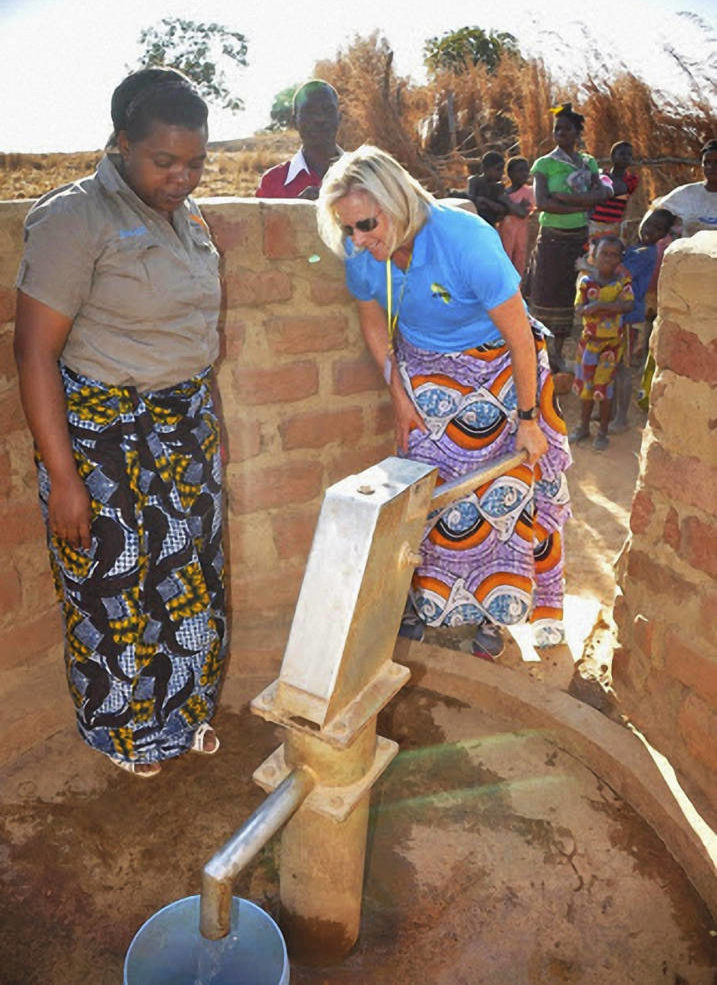
“We have been blessed to have committed partners who have made significant transformational investments in our work, allowing us to leverage our unparalleled worldwide reach for its highest and best use,” says Chris Glynn, senior vice president of Transformational Engagement at World Vision. “For example, their support has helped enable us to scale our clean water projects from reaching 200,000 people every year to more than 3 million annually, now reaching one new person every 10 seconds.”
Betsy calls their relationship with World Vision and the progress toward reaching everyone, everywhere we work with clean water as “invigorating.”
“I love the excitement involved with the goal of bringing clean water to everyone in the world,” she says.
Betsy and Debbie realize how World Vision truly expands the reach of Golf Fore Africa.
“What World Vision does that’s really awesome is they invite people to come along with them on a journey,” Debbie says. “So, to be invited on this journey, whether it be on a Vision Trip [to see World Vision’s work] or to partner with them on a water project or an economic opportunity, you’re invited in to do something that you could never do on your own. And to be part of something that’s so big, it’s bigger than yourself. We don’t have a lot of opportunities like that in our lifetime. It’s magical to get to do something like that.”
Every child deserves clean water.
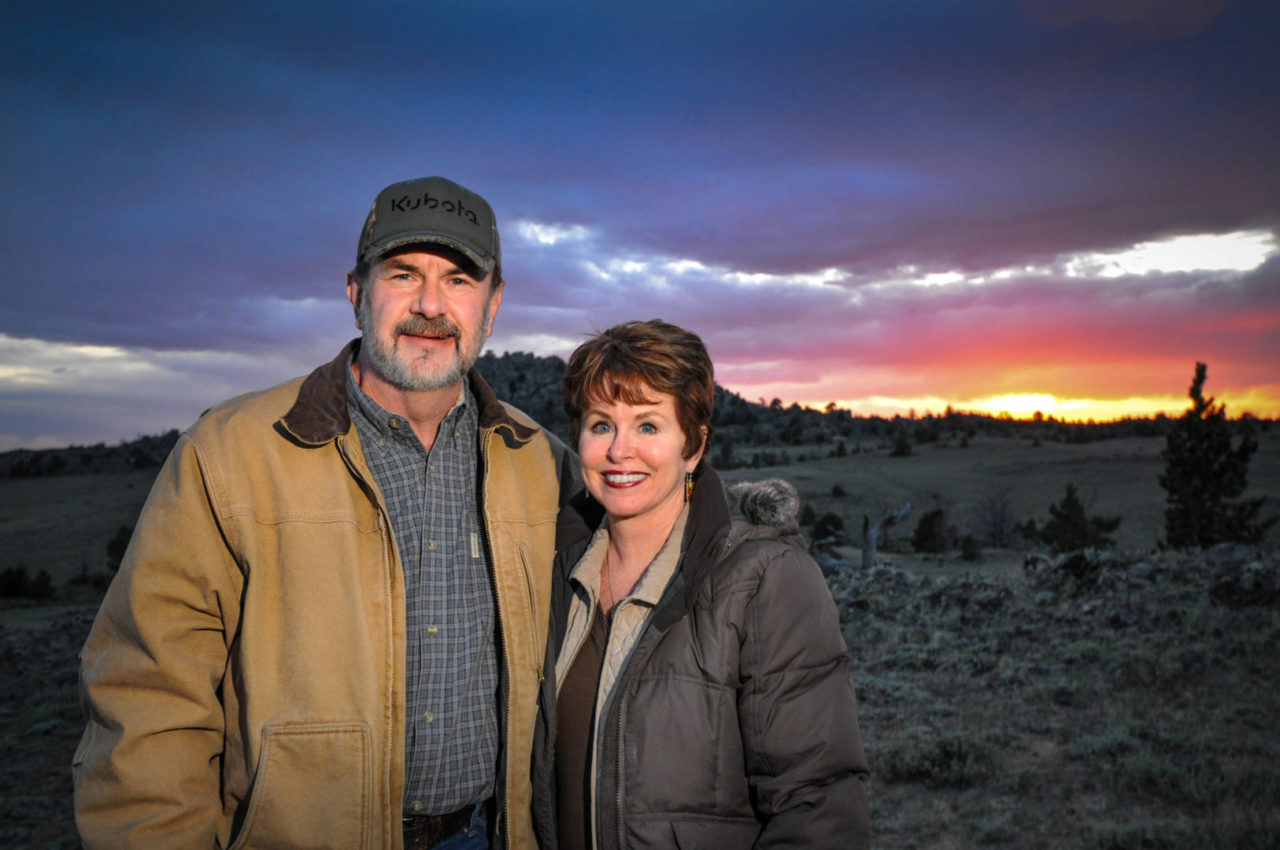
Robin and Stu Phillips, retired lawyer and retired chairman of the board and principal owner of a neurological rehabilitation center
- Investment: $10 million toward economic empowerment
- Results: Their gift has been catalytic to other investments that have resulted in double the funding for economic empowerment programs with the following impact:
- 12,000 smallholder farmers have improved their agricultural practices using improved seeds, crop storage, and increasing their yield per hectare.
- 16,000 participants have access to financial services through savings groups and/or microfinance.
- 10,000 smallholder farmers have increased their produce sales prices by accessing local and regional markets.
- 39,045 hectares have been planted with new trees and/or regenerated.
- 16,000 smallholder farmers are receiving early warning information to prepare them for natural events (drought or flooding) or market price fluctuations.
- 16,000 participants have received empowered worldview training.
Start with the foundation of prayer. Do your research. Ask God for guidance. And if called to this work, contribute in every way you can: time, talent, and treasure. But when conflict arises between your analysis and the heart God calls you to apply, always go with your heart.—Stu Phillips, retired chairman of the board and principal owner of a neurological rehabilitation center
In 2010, when rereading The Hole in Our Gospel while spending time at Moriah Ranch, his family’s 14,000-acre vacation getaway in Wyoming, Stu Phillips heard God ask him what possession he valued most. Looking at his surroundings, he instantly knew the answer — Moriah Ranch.
Empowering people to care for themselves and advocating on behalf of the vulnerable have been lifelong passions for Robin and Stu Phillips. They describe the blessings God has provided them as numerous, extraordinarily powerful, and, as they have discovered, requiring obedience.
“God had gone out of his way to make it clear from the beginning of our business that he was the one who was enabling us to proceed, grow, and thrive,” says Stu, 65. “So because of his intervention early on and his engagement after that, he had prepared us for the time when he was going to ask for those resources to be used in a different way. He’s an amazing God.”
Now, God was calling them to sell their most prized possession to become more actively involved in what they believe is the greatest systemic social issue of our time — extreme poverty.
“As a businessperson, you tend to approach things analytically, as an intellectual process,” Stu says. “God isn’t impressed with your intellect. He breaks your heart. From there, he uses the strengths you have to fulfill his purposes. And God made it clear he wanted me to use the resources he had provided.”
At first, Stu and Robin questioned the validity of the call. They tried negotiating with God, reasoning — among other things — that the ranch was a legacy for their sons, but none of the excuses offered any comfort.
“We only had [Moriah] because he had provided the resources,” Stu says. “So, if God wanted it for his purposes now, it is our responsibility to provide it.”
Recognizing that the ranch was God’s possession, Robin and Stu sold Moriah, which means chosen by God, to the State of Wyoming in April 2012. They dedicated the total of their proceeds from the ranch, including the original purchase price, to eliminating extreme poverty.
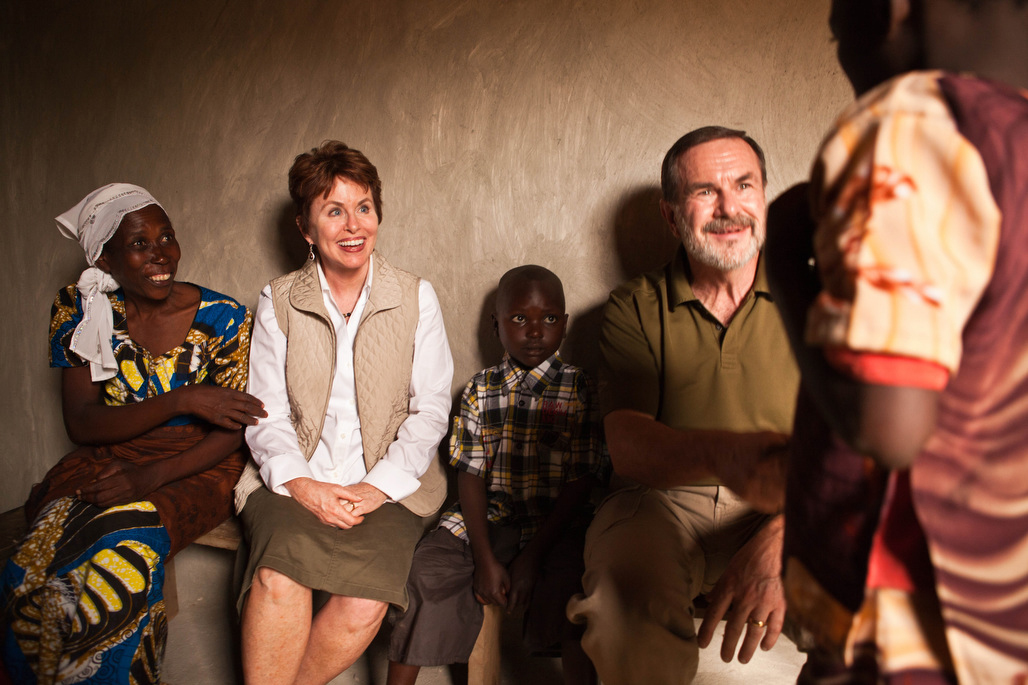
“We’re ordinary people who are being obedient to what God has asked us to do,” says Robin, 64. “People talk about our gift as sacrificial. And in some sense, it was sacrificial because it involved taking something away from our children that we had implied to them would be theirs when we were gone. That part was difficult.”
However, over the following years, they’ve watched God work in mysterious ways to honor their obedience — both in their lives and in the lives of people who have heard their story.
“Recently, we met a Rwandan woman farmer at a project site we had funded,” Robin says. “She told us that in the past, she had not been able to feed her children a meal every day or pay school fees among other challenges. But then she told us about participating in World Vision’s economic empowerment work. She said, ‘I thank God, World Vision, and this project because with what I have been taught, and what I know now, I am not in poverty anymore, … and I will never go back!’ That mother is now an empowered woman who is fulfilling her God-given role as her children’s mother with knowledge, confidence, and joy.”
A deeply personal moment for them occurred while visiting Tanzania to see the impact of their transformational investment. Robin and Stu found places where they looked around and if they didn’t know better, they would have thought they were back at Moriah.
“One of the first times we were in Tanzania,” Robin says, “we’re literally on a different continent, but there are certain places that when we saw them, we just looked at each other and smiled. It’s surprisingly so like Wyoming! It feels to us, that Moriah Ranch is in some strange way here in Tanzania. To us, it was a unique confirmation from God.”
It was another gift from God — from the aromatic vegetation that reminded them of sage to the similarity between elk and kudu. No one but them at the time understood the significance of what they were seeing.

“Those are grace gifts only God can provide,” Stu says, explaining that God’s economy is far different from ours. “Nobody puts that on a spreadsheet.”
Robin says that it doesn’t get any better than seeing the faces of the children Moriah’s proceeds were helping.
“[God] asked me to surrender something great in order to receive something greater,” Stu says. “He wanted to remind me that there is no vista, no place, no possession more beautiful than the face of a child.”
When one of their sons later traveled with them to Rwanda, Robin remembers he said, “I finally get it. I know why you wanted to do this. I thought my legacy was always going to be the ranch. But now I see that the children of Africa and these people, this is the legacy for our family.”
Longtime sponsors of several children, Robin and Stu are also members of World Vision’s National Leadership Council — a core group of passionate and influential donor partners.
[God] asked me to surrender something great in order to receive something greater. He wanted to remind me that there is no vista, no place, no possession more beautiful than the face of a child.—Stu Phillips, retired chairman of the board and principal owner of a neurological rehabilitation center
“For me, World Vision and seeking to eliminate extreme poverty was a calling,” Stu says. “When that happens, you’re confronted with a fundamental decision. Are you going to listen and obey God, try to ignore him, or try to substitute your own plan? Ignoring God is like all our sins; it limits what God can do in us and through us. As to our plans versus God’s plans, God’s plans are always better. Fundamentally, there is no greater purpose, no greater honor, and no greater joy than to know that God is actively using you to fulfill his purposes.”
Their investment of time and treasure toward World Vision’s economic empowerment work has supported the development and expansion of THRIVE — Transforming Household Resilience in Vulnerable Environments — a program that focuses on family-level change and is proven to dramatically increase household incomes, resulting in stronger and more self-sufficient families.
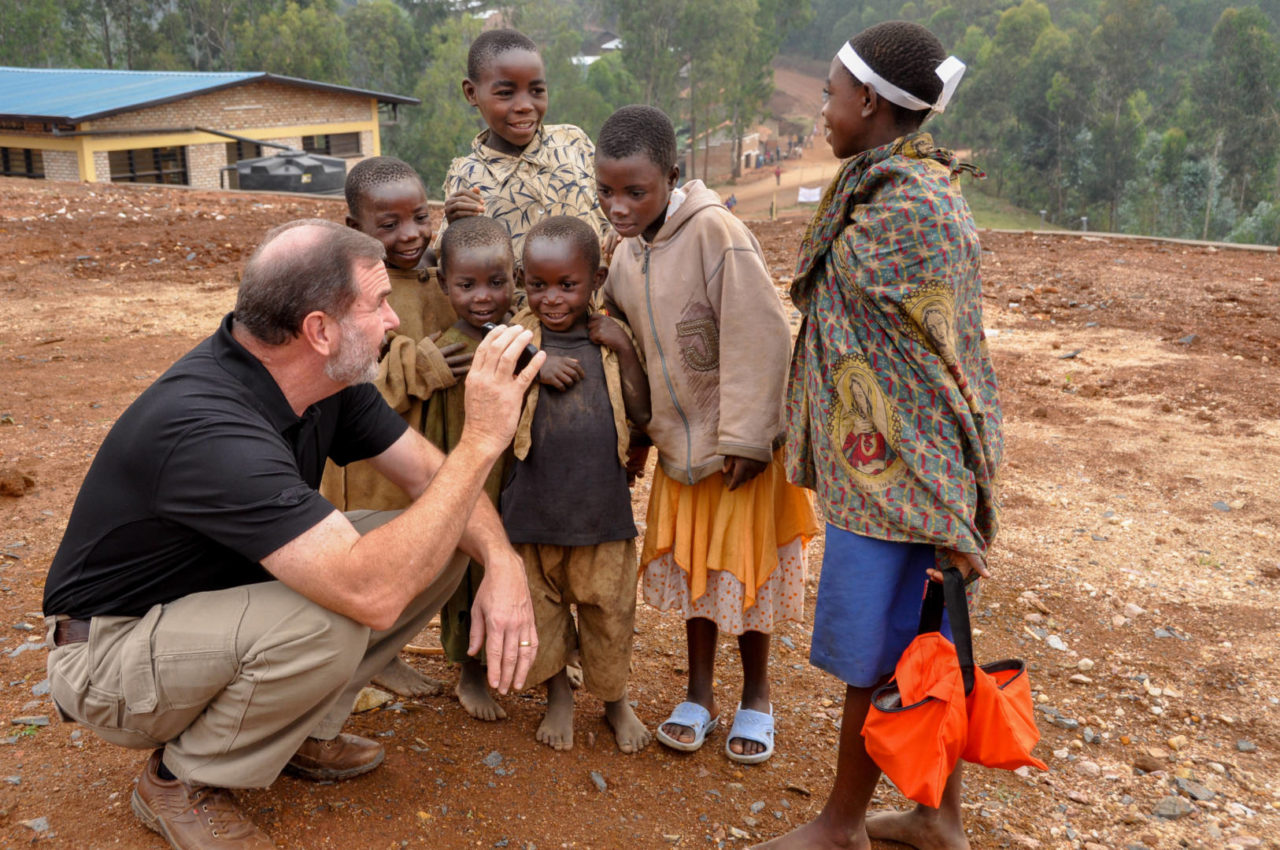
“The potential scale of your impact isn’t regional. It’s not even national. It’s global,” Stu says. “When, as a donor, you’re looking at return on investment and social impact, scalability is one of the things you have to consider. World Vision is the premier Christian organization serving the poor, and it is unique in its willingness to not only use our financial assets but our time and our talent as active partners in the process.”
One aspect of THRIVE that Robin and Stu are particularly excited about is the foundation of a biblically empowered worldview, based on the understanding that each person is created in the image of a loving and redeeming God, is accountable for their actions, and has the power to shape their own future. That is the first and most critical transformational step in eliminating extreme poverty.
“God doesn’t ever ask us to give more than we can give or to give something we don’t have,” Stu says. “Because we’ve been blessed the way we have, we have greater responsibility to demonstrate our appreciation for the blessings he’s shown us.”
Help build improved and resilient livelihoods for smallholder farmers and their families.
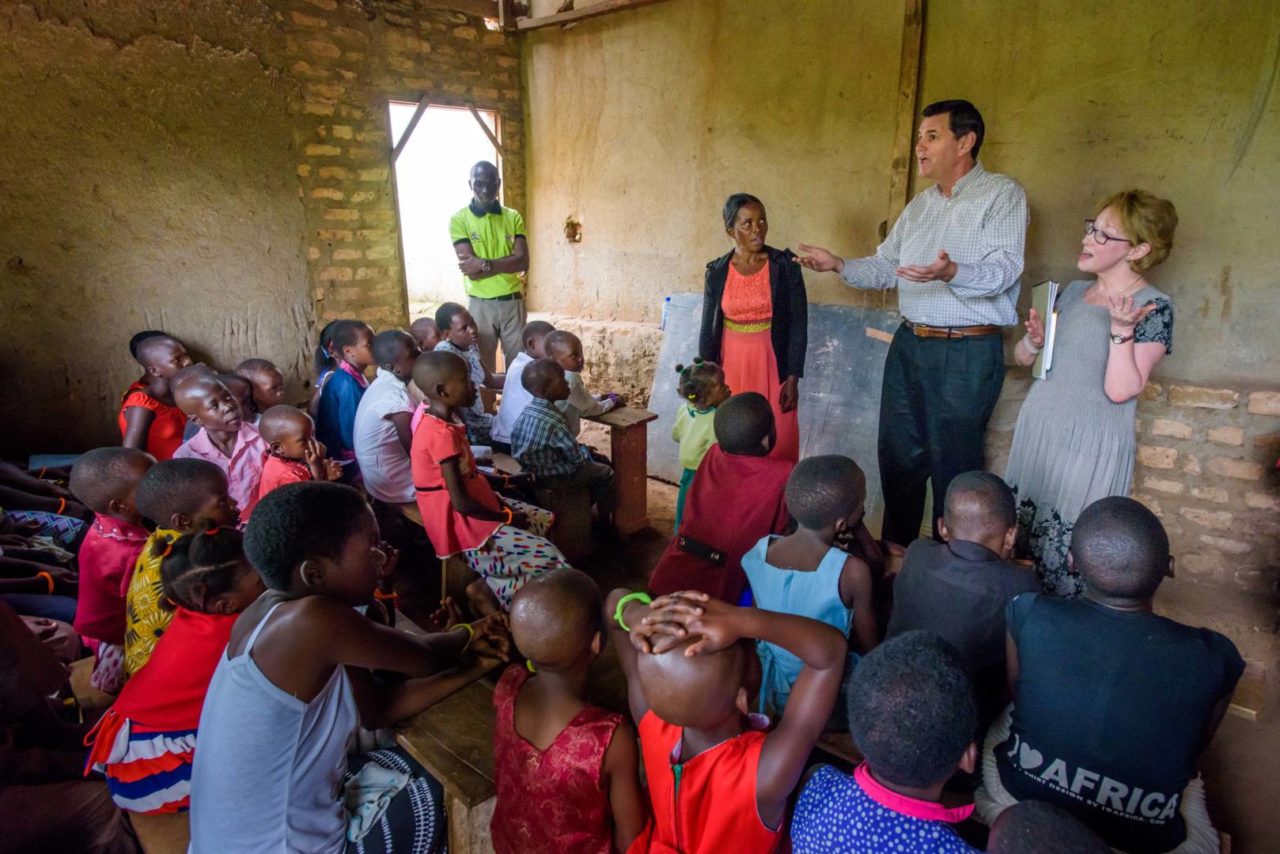
Laura and Robert Abernathy, retired nurse and retired healthcare CEO
- Investment: $6 million toward mother and child health
- Results: Their investment will help provide healthcare and nutrition services to more than 600,000 women and children in Somalia, Uganda, and Zambia. It will also contribute to:
- Training and equipping 7,161 community health workers and volunteers and 723 nurses and midwives to provide care and education to children and pregnant women who may otherwise not have access to healthcare
- Equipping over 700 faith leaders as advocates and educators for improving mother and child health in their communities
- Supporting 34 clinics in Uganda with nurse and midwife training, delivery kits, hand-washing equipment, and improved conditions for safe delivery
- Launching a new program, BabyWASH, in 10 facilities in Uganda and Zambia; includes renovations of maternity wards, medical equipment and supplies, piped clean water to delivery rooms and postnatal areas, toilets, and other sanitation improvements
It never says in the Bible to care for the least of these only if you get a good return on your investment, but you do want to know that your money is being utilized in the most efficient way possible to help the least of these. And World Vision does that.—Robert Abernathy, retired healthcare CEO
Laura and Robert Abernathy had no idea what God had in store for them when their neighborhood Bible study read The Hole in Our Gospel by World Vision U.S. President Emeritus Rich Stearns. A little more than five years later, as they reflect on that time, Laura, 61, says, “It really touched our hearts. Both Robert and I have been Christians since we were children and been involved in mission projects, mission programs, our churches, and other organizations. But we were convicted that we were not really touching the least of these.”
Within six months of that deep conviction from the Holy Spirit, Laura and Robert joined World Vision’s National Leadership Council and made their first transformational philanthropic gift to World Vision.
“We were all-in,” says Robert, 63, a former senior vice president at Kimberly-Clark Corporation and most recently the retired CEO of Halyard Health Inc.

In their excitement, Laura and Robert told their adult children, Elizabeth and James, about World Vision and its child sponsorship programs. They were surprised to find out that both of them had sponsored children already.
“We now sponsor two little girls. We chose them — it’s so hard to choose — because they have the same birthdays as our two little granddaughters,” Laura says. “We pray for our sponsored children as we pray for our granddaughters. And we celebrate their lives as we do our granddaughters.”
But that transition to becoming all-in came with due diligence.
“We’ve seen a lot of organizations have bold visions,” Robert says. “And then when you dig a little deeper, they’re under-resourced, or they can’t get the job done.”
What were they looking for? A Christian-based organization.
“Our giving is all about faith,” Laura says. “It’s not ours to begin with. Robert’s been blessed. We’ve been blessed.”
Robert says they clearly saw World Vision was Christian-based from the start.
“You don’t have to read much further than the first 10 lines of The Hole in Our Gospel to know,” Robert says. “You see it in the people you meet, the staff members. It’s written into the mission and vision of the organization.”
Next came a closer look at World Vision’s finances to make sure they felt good about how their investment would be utilized.
“I wanted to know how much money actually gets to the poor,” Robert says. “I’ve seen organizations where less than 20% gets to where it’s supposed to go. And I’ve seen organizations that say they give 96%, and then you dig through it, and it’s really more like 46%; they count the money funny.”
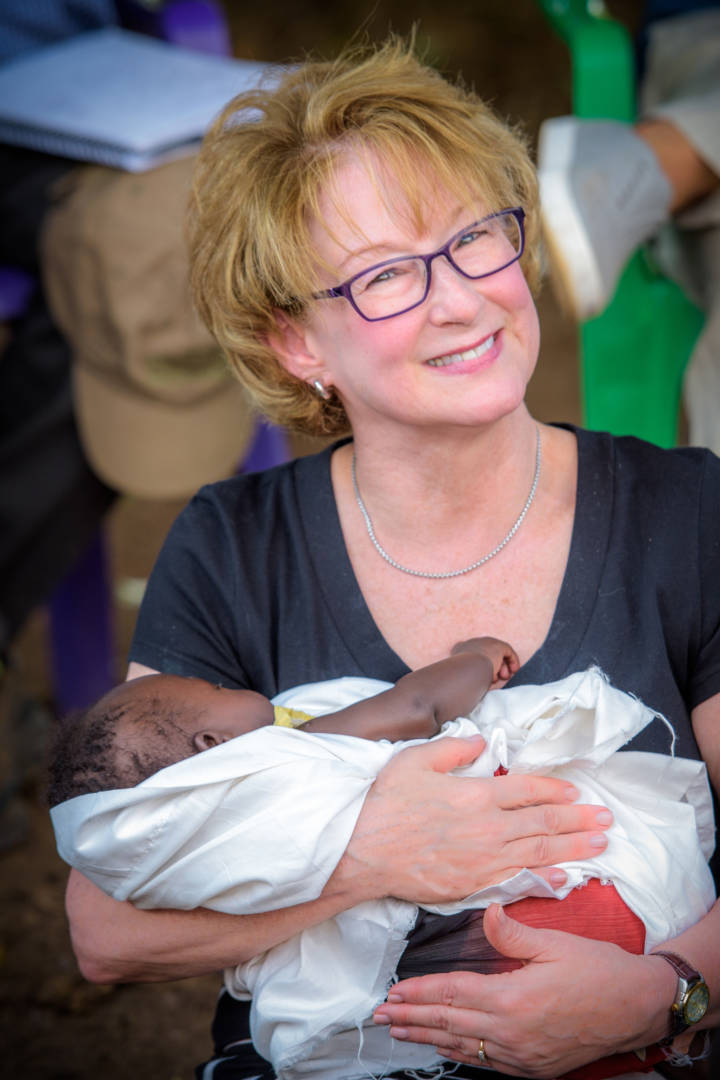
In 2017, 85% of World Vision’s total operating expenses were used for programs that benefit children, families, and communities in need. Then World Vision multiplies the impact of every $1 donated into $1.30 on average.
“Once you really get into World Vision and understand it at a deeper level, you start to understand the multiplying effect,” Robert says. “World Vision is able to take your gift and then leverage it with corporations, foundations, and government grants. They really can multiply your gift many times, and not many organizations are able to do that. You don’t feel like what you give is just a one-time investment. It feels bigger.”
Laura adds, “We are told not to bury our talents, but to multiply them.”
Financially speaking, World Vision also helps round out their investment portfolio.
“It helps fulfill the rest of the picture for us,” Robert says. “We’re involved in our local community. We’re involved in our church. World Vision is the organization that allows us to connect in a Christ-like way to the world.”
Lastly, they looked for the ability to get results using winning strategies. World Vision’s proven, community-based health approaches aimed at the first 1,000 days of life feature basic health interventions for mothers and babies, including a sharp focus on nutrition (the 7-11 model) and the delivery of timed and targeted counseling and education through local volunteer community health workers who are trained and supported by World Vision.
We are so fortunate that World Vision is an organization that desires to partner with donors. It’s one of the few places where you can give money and be part of what your money’s doing.—Laura Abernathy, retired nurse
Over the last five years, 89% of the severely malnourished children World Vision treated made a full recovery — far above the industry standard of 75% or greater. In addition, World Vision supports one of the largest community health worker networks in the world, with more than 220,000 in over 48 countries who can reach 66 million people. They are trusted by the community and are able to reach remote villages, delivering frontline care cost-effectively.
“When we decided to give [to World Vision], we knew of terrible, terrible situations that were in desperate need of help,” Laura says. “So, there was no need to wait.”
Over the span of Robert’s corporate career, their family moved 17 times, at one point living overseas in Australia. Robert has traveled to more than 130 countries and with each trip has brought back stories of desperate situations to his family.
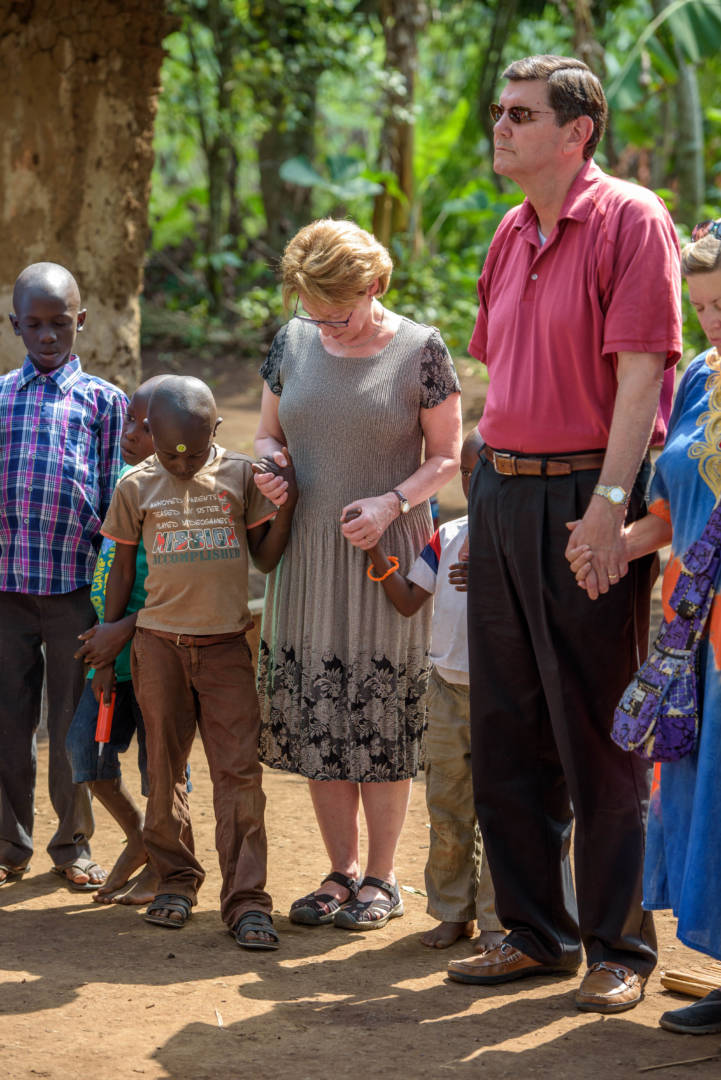
Josephine Bingi, 63, who makes 650 banana pancakes every Sunday to sell for income that helps her care for 13 orphans she’s raising on her own. (©2016 World Vision/photo by Jon Warren)
To see World Vision’s work in action, Laura and Robert have traveled to Zambia and Uganda.
“You see the quality of the World Vision staff in country and the number of community volunteers who are supporting that,” Robert says. “You come away saying, ‘I can see change happening — not continent by continent all at once, but community by community over time.’”
They’ve not only seen World Vision’s work in mother and child health, but also clean water, economic empowerment, education, child protection, Christian discipleship, and ultimately, how those sectors work together to form a holistic community development model.
“They’re so interrelated,” Laura says. “I visited several health clinics that were without electricity. And then I was able to go back three years later and see the difference — see a facility with clean water, electricity, and solar power.
“One nurse midwife — instead of being on-call 24 hours a day, seven days a week — has a staff and can actually sleep at night on occasion. Then to hear how malaria rates have gone down to almost zero. HIV and AIDS have been greatly reduced. To hear those very distinct measurements, it wasn’t just looking better; it was measurably better.”
Since Robert’s retirement mid-2017, Laura says they “have the time to do more and want to do more.”
And they have — Robert recently joined the World Vision U.S. board of directors. He describes their relationship with World Vision as spiritual, rewarding, and challenging.
“You don’t increase your commitment if you’re dissatisfied,” Robert says.
And they’re thankful for the partnership World Vision has offered to them.
“We are so fortunate that World Vision is an organization that desires to partner with donors,” Laura says. “It’s one of the few places where you can give money and be part of what your money’s doing.”
Help eliminate preventable deaths among mothers and children.
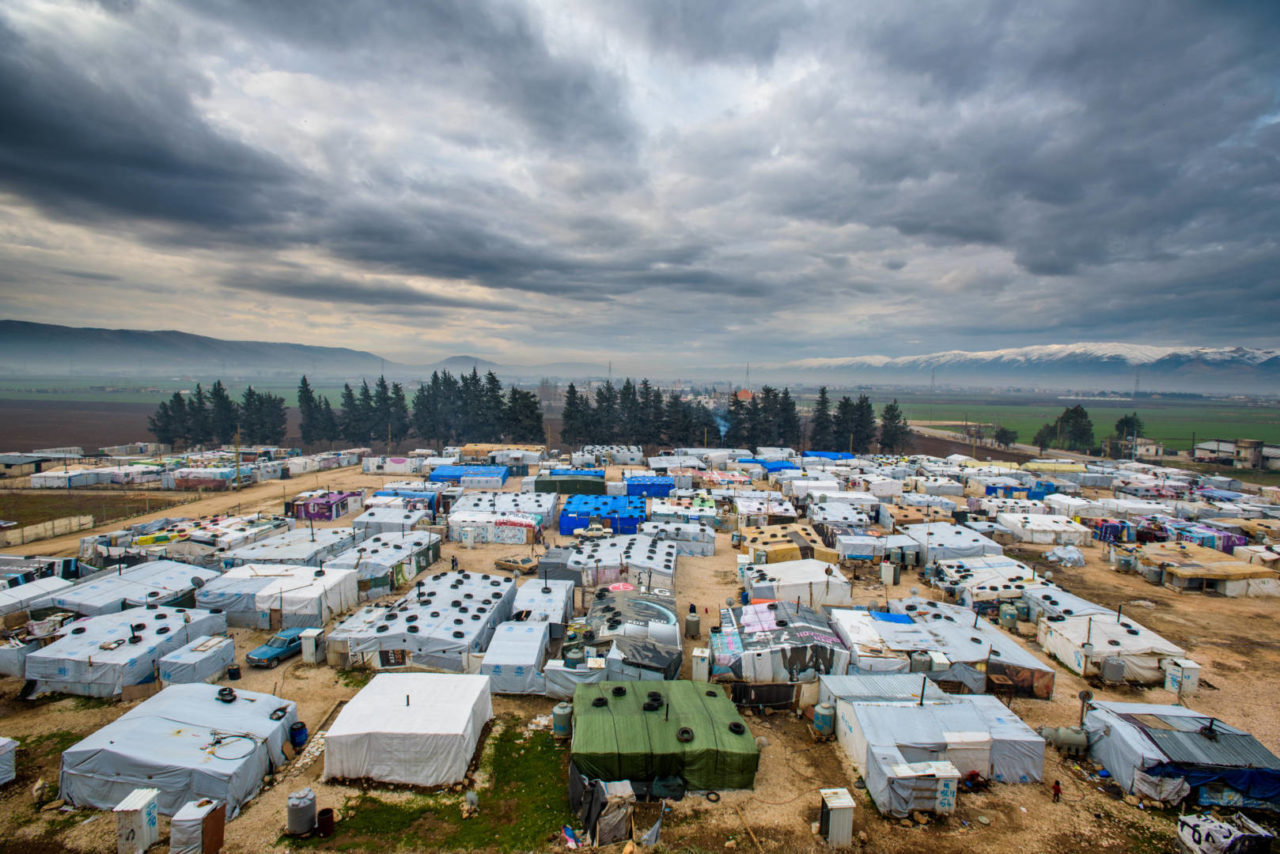
Dan and Aimee F., financial industry
- Investment: $1.7 million toward emergency relief and fragile contexts
- Results: Over the past three years, their investment has helped 21,926 Syrian refugees and displaced people and 28,232 people affected by the East Africa hunger crisis.
Do your due diligence like we did. Meet the people. Look at the numbers. Do the math. You’ll find that this is a very, very good place to invest your charitable dollars.—Dan F., financial industry
Over the past 15 years, Dan F. has gradually become well acquainted with World Vision’s work and staff by investing in multiple community development sectors, including economic empowerment and water, sanitation, and hygiene. That gradual relationship has coincided with becoming more and more confident in World Vision.
“When you see the numbers line up and then you are impressed by the quality of World Vision’s staff, it’s pretty easy to pull the trigger on some larger investments,” says Dan, now 40. “I am confident that our money is being put to good use and is making a significant difference in people’s lives.”
On a trip to Zambia in 2010, Dan not only visited a well he’d paid for but also met the community members who are benefiting from the water project. He saw how World Vision partners with communities for sustainable change.
“The community members I met in Zambia take tremendous pride in their new well because they are actively engaged in the full process of planning, implementation, and maintenance,” Dan says. “Instead of treating people like helpless victims, World Vision invests in them, trains them, and builds up their capacity to continue driving their lives forward. They are the protagonist of the stories, and we are the supporting cast who helped them achieve their goals. It is amazing to see.”
Halfway through his journey with World Vision, he met his wife, Aimee. She says that being involved with World Vision is so important to Dan, and she has learned more and more about the organization through him.
“I soon became just as impressed with World Vision and the good work they do as Dan is,” says Aimee.
Before 2015, the vast majority of Dan and Aimee’s generous donations were allocated to long-term community development projects in stable countries. That all changed right after their first child’s birth — when they first learned about the Syrian refugee crisis.
“I found myself spending a lot of time glued to the news coverage, cradling our newborn, and crying over the stories and images I was seeing,” Aimee says. “Dan and I agreed to focus as much giving as we could to support World Vision’s aid efforts in the region. It was the first time I’d ever felt that I wasn’t completely powerless to help people so far away who are suffering in such a dire situation.”
World Vision has been working in the Middle East for nearly 40 years and extended a helping hand to Syrian families beginning in 2011 when the Syria civil war began.
“World Vision is equipped to help in ways we never could, and our support, combined with many others, is making this possible,” Aimee says.
Dan and Aimee have continued to serve the most vulnerable in their hour of greatest need. They now allocate a large portion of their family’s charitable investment portfolio to World Vision’s work in emergency relief and fragile contexts — where extreme poverty stubbornly resists solutions, but also where they recognize a dollar can have a “radical impact.”
Dan explains, “It’s riskier giving money to places like Syria or South Sudan, but there is so much suffering and so little help. I think of it as a high-risk, high-reward investment, but a short-term focus. It’s a very different mentality than I started off with WASH (water, sanitation, and hygiene).”
You can give to the amateurs, or you can give to the people that have been really perfecting this for the last [nearly] 70 years. World Vision is a very impressive team that takes a scientific approach.—Dan F., financial industry
With his background in the financial industry, Dan equates work in emergency relief and fragile states as credit card debt the world needs to pay off and community development work as the long-term investment portfolio.
“You need to pay off your credit card balance each month while building your long-term investment portfolio,” Dan says. “In the last couple of years, the magnitude of short-term needs has been so startling. Every dollar you can put in — it’s going to alleviate a tremendous amount of suffering today and help prevent a situation that’s already really bad from spiraling into something much, much worse.”
In the past decade, the number of people affected by emergencies has almost doubled, and this number is expected to keep rising. World Vision is uniquely situated to respond to any disaster or humanitarian emergency — anywhere in the world — from immediate life-saving supplies when disaster strikes to long-term recovery work so people can rebuild their lives.
“You can give to the amateurs, or you can give to the people that have been really perfecting this for the last [nearly] 70 years,” Dan says. “World Vision is a very impressive team that takes a scientific approach.”
In 2017 alone, World Vision staff around the world, 95% of whom work in their home region, responded to 170 emergencies and assisted approximately 13.8 million people in 56 countries.
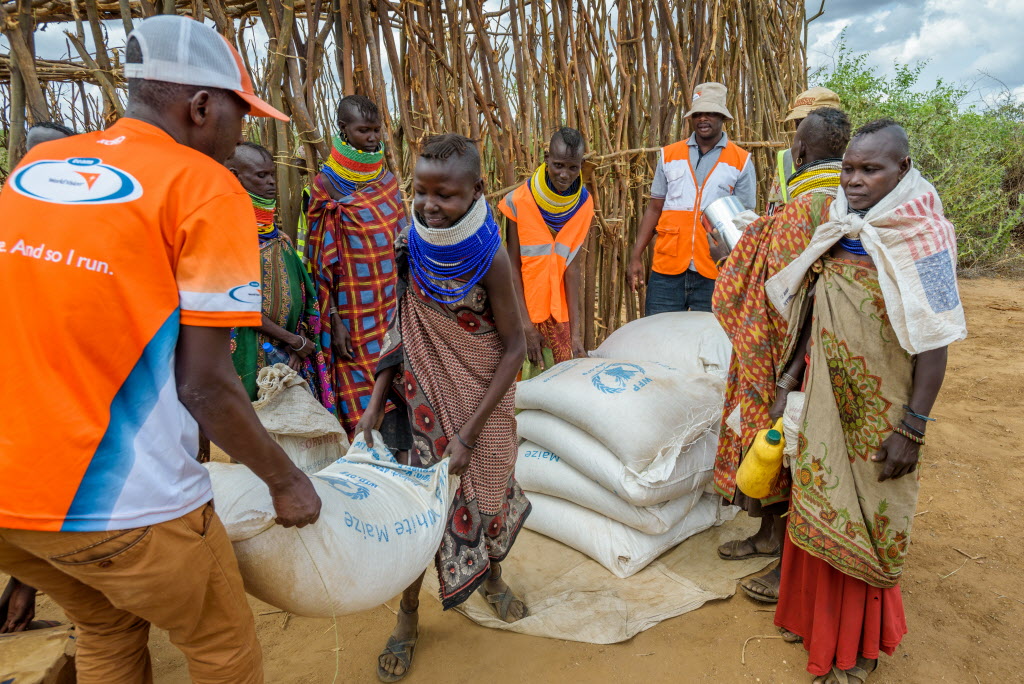
“From the crisis relief standpoint,” Dan says, “it makes a really big difference to me that when something goes wrong somewhere in the world, whether it’s a hurricane or war or famine, it seems like a lot of organizations fly in and try to help, but World Vision is usually already there, and they’ve already been there for decades.”
Dan and Aimee see their investment as an opportunity to live out the radical message of Jesus by helping people in the most desperate situations.
“Probably the best way to introduce people to Christ is by living out compassion,” Dan says. “There are a lot of people in the world right now who are very turned off by Christians. They have good reason to be. But when we go out and we really try to minister to the least of these — the people that are on God’s heart — we’re showing people an image of God that’s a lot more accurate than the image they’re seeing in the media.”
Overall, Dan and Aimee are focused on making sure everything they invest in is a cause they really believe in. They say they feel a God-given responsibility to be part of God’s kingdom in terms of alleviating suffering throughout the world and a high accountability for how they do so.
“We’ve come to our current charitable portfolio by really thinking about where our dollars should go first and then thinking about the most trustworthy institution to be tasked with deploying these dollars,” Dan says. “We take stewardship very seriously. World Vision is the largest charity in our philanthropic portfolio because we view it, based on our due diligence, to be a very high-quality organization.”
Meet urgent needs of the world’s most vulnerable children.
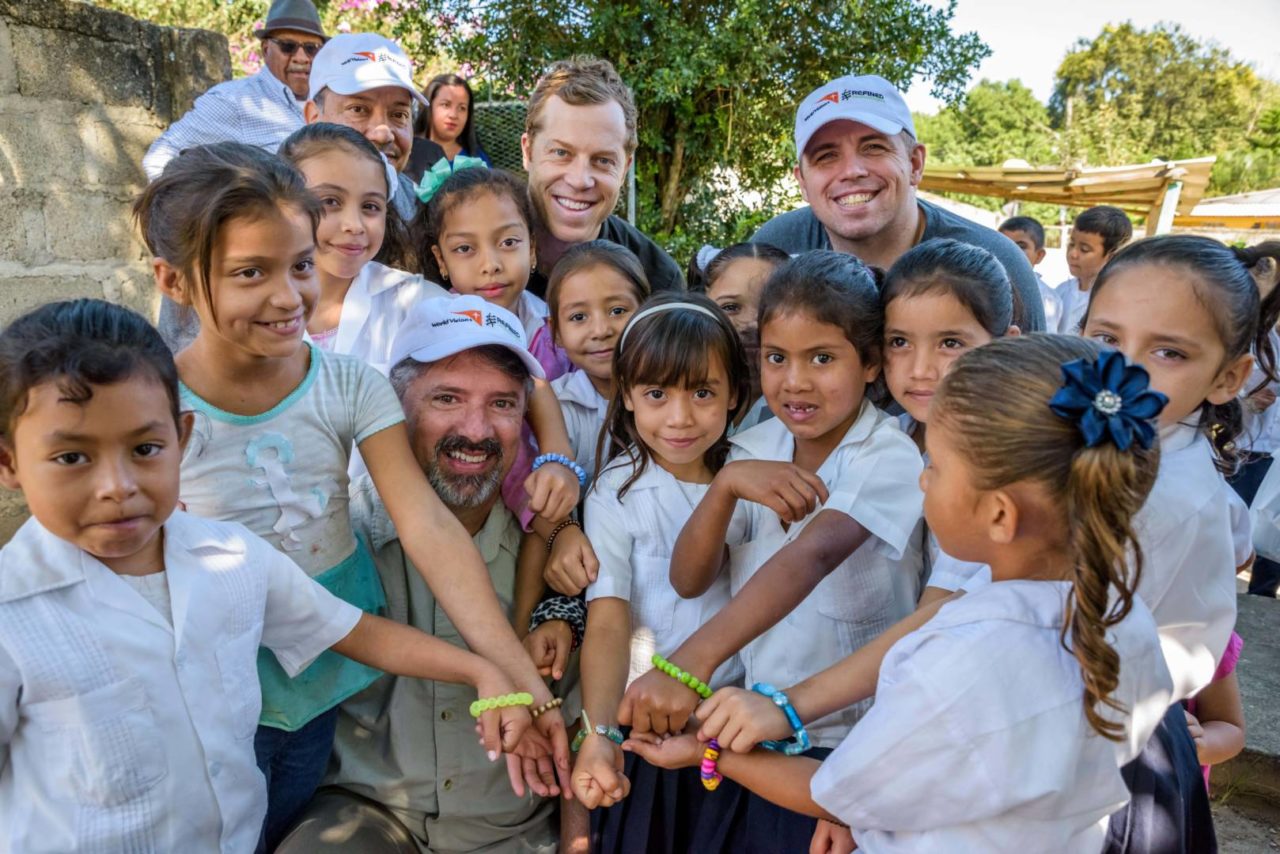
Cody Nath, president and CEO of Refined Technologies Inc.
- Investment: $1.1 million toward water, sanitation, and hygiene projects in Honduras
- Results: In less than a year, 3,000 people in the Jamastran Valley of Honduras now have clean water. Their gift is expected to support another 34,000 people with clean water.
Our partnership with World Vision is incrementally strategic — growing in strategy, trust, and direct involvement. We’re trying to figure out how can we leverage more and more of what we’re doing as a business to make an impact globally with World Vision.—Cody Nath, president and CEO of Refined Technologies Inc.
Cody Nath, 37, can’t remember a time growing up when his family didn’t have World Vision sponsored children — often two or three at a time. Then at age 14, he traveled with his father, Bill Nath, to Mexico to see World Vision’s work at the time with children living on the streets. Nicaragua came next, then Honduras, and with each trip, the values his parents instilled in him — the importance of missions, prayer, and faithful giving — became ingrained.
In 2001, Bill founded Refined Technologies Inc., a chemical decontamination company providing operational consultancy, chemical cleaning, and mechanical rental services to refineries. Cody succeeded his father as president and CEO in 2016. From the beginning, their mission statement leads with, “Honor God always.” Cody explains that this means everything from operating under biblical principles like honesty, integrity, and respect to reinvesting profits for eternal impact into ministry partners like World Vision.
“We believe our company belongs to God, and we are simply stewards,” Cody says. “We’re responsible to him for how we use the profits from the business. And as Christians, we know we’re called to give.
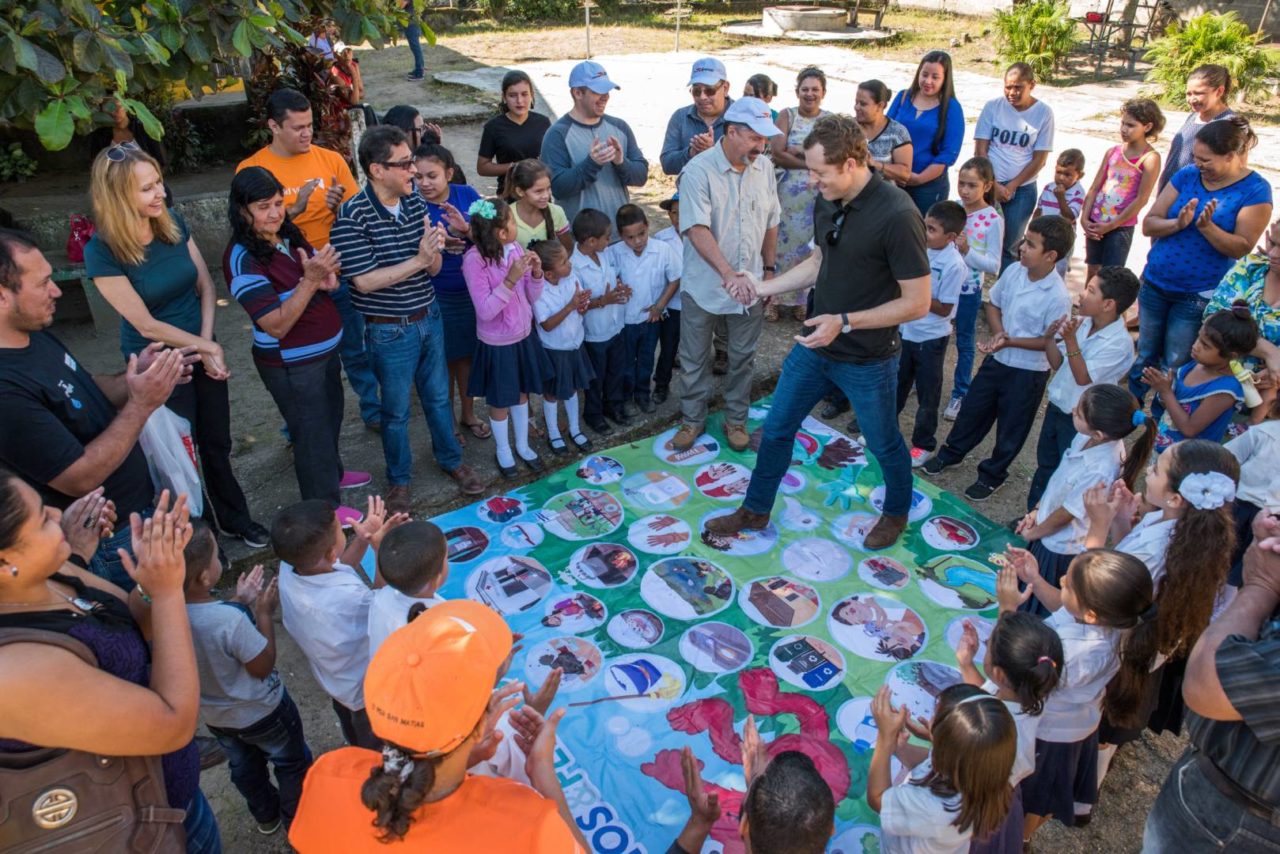
Beyond the calling, Cody finds the opportunity to give extremely rewarding. “It blesses us,” he says. “We end up benefiting because we’re now giving as a team instead of giving as a family — that’s a very rewarding experience. The Nath family is only a piece of this; we earned these profits as a Refined Technologies team.
“I also want to encourage our team to give and know that they’re part of something much bigger than refinery services. And I know that’s happening because of the stories I hear from our team. When people come to work for us because of what we’re about, then I know it’s making a difference.”
For Cody, it’s not about work-life balance; it’s all about work-life integration, focusing on incorporating your philanthropic values into your job.
Cody’s vision is to engage RTI employees by providing numerous ways for them to participate in the partnership with World Vision and emphasizing how excellent work enables the partnership — employees delivering their daily work translates to dollars for water. Opportunities for employees to get involved include paying a portion of sponsorship for Honduran children, taking brief RTI-sponsored trips to Honduras to see World Vision’s work toward ending the water crisis, distributing co-branded water bottles to clients and partners to share their commitment to help make a difference, and walking in World Vision’s annual Global 6K for Water.
“When people know that what you do matters, it’s not just a job. That changes lives,” Cody says. “Our employees would say they’re different people from having worked and spent time here. And their families are different. World Vision is part of that. It’s an aspect of what we do to try and be our whole selves at work.”
During a trip to Honduras about five years ago, solving the global water crisis became a personal mission for Cody. Confronted with the reality of a community’s water source in western Honduras near Gracias, Cody saw dirty water like he’d never seen before — dirt-ridden suds had left a thick film on the surface. “It was terrible — like all the horrible photos you’ve seen,” Cody says. “If it’s within your power, you’re not going to walk away without doing something to help.”
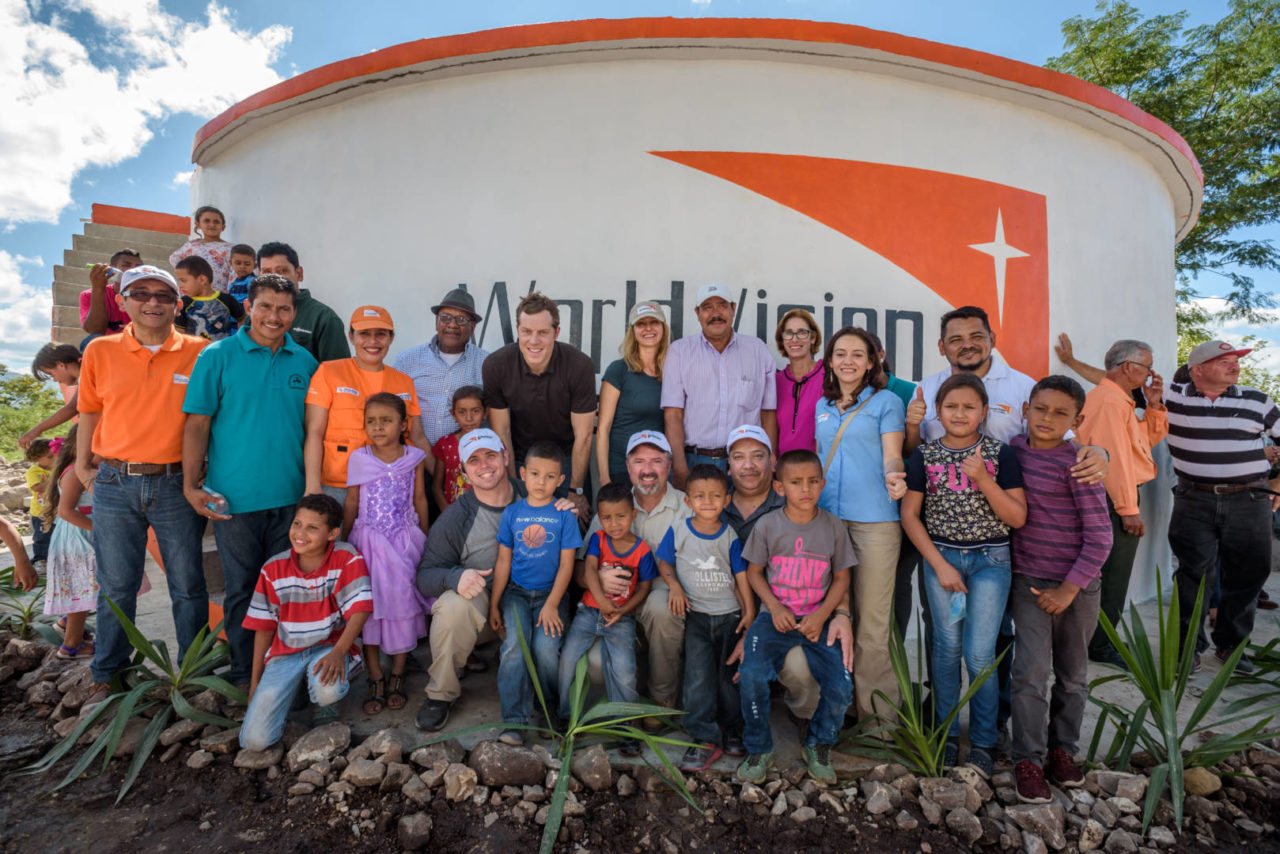
So Cody integrated his personal mission with his work at RTI. Over the past five years, Cody broadened his investment to water, sanitation, and hygiene projects, culminating in a $1.1 million gift to World Vision made in 2017.
“Like any relationship, the level of investment grows over time,” Cody says. “Trust grows over time, and results are a big piece of it. You can see the results, which gives us confidence in our investment.”
Generous philanthropic gifts like that from Cody and RTI have enabled World Vision to reach 10.4 million people with clean water in the last two and a half years and remain on track to reach everyone, everywhere we work with clean water by 2030 — an estimated 50 million people. World Vision is a proven leader in solving the global water crisis, reaching one new person every 10 seconds.
“What I really like about World Vision, and why we’ve gotten more involved, is the holistic approach,” Cody says. “This is a development model that helps people develop physically, emotionally, and spiritually. World Vision launches an effort and lets the community drive it forward as their own.”
World Vision believes in a big-picture approach to helping communities address critical needs — bringing together all of the pieces — nutritious food, clean water, economic opportunities, healthcare, education, protection, and the love of Jesus — for a full solution to the puzzle of poverty.
“World Vision is a place where you can make a significant financial investment,” Cody says. “No investment is too big. They have the structure and organization to effectively use your gifts as they grow over time.
“World Vision has the organizational capacity to execute investments to scale and always with a spiritual, Christ-centered focus. If you don’t have a spiritual component, it’s helpful, but not life-changing.”
Cody’s life-changing investment truly hit home in January while traveling to the Jamastran Valley of Honduras to celebrate bringing clean water to 3,000 people in two communities — Sartenejas and Zamorano.
“Being part of a visibly transformative project that can happen in under a year to dramatically change the lives of people — it’s not a difficult concept to say we should do more of that,” he says. “So then we ask ourselves, ‘How can we increase our giving as a company and as individuals?’”
World Vision has the organizational capacity to execute investments to scale and always with a spiritual, Christ-centered focus. If you don’t have a spiritual component, it’s helpful, but not life-changing.—Cody Nath, president and CEO of Refined Technologies Inc.
He also recognizes that the project was not without its learnings and challenges.
“World Vision does a good job of managing, ‘This is what we said we were going to do. This is what the challenges were, and this is what we accomplished,’” Cody says. “It’s not like everything goes smoothly. We’re dealing with developing countries and clean water projects that have never existed before. So there’s learnings; there’s challenges.”
But beyond challenges, he has confidence in the sustainability of World Vision’s water projects. “When we spend an investment on a project like Jamastran, I feel very confident the project will still be helping people in 20 years,” Cody says. “They now have clean water for life, not clean water for a year. Our confidence in the local World Vision team is very high due to their capabilities, character, and commitment.”
Now he’s looking forward to additional development work for the families and children he has come to know.
“We know that when we invest in water with World Vision, that’s going to lead to additional community development,” Cody says. “We didn’t leave Jamastran in January thinking, ‘Great, we’re done.’ We know the local communities are committed to continued development and the many challenges that lie ahead. We also realize there are many more communities in need of getting started on their development journey, and we’re eager to be involved. We look forward to an enduring partnership with World Vision and seeing families changed in Jesus’ name.”
Every child deserves clean water.
‘One of the best investments you’ll ever make’

David is an aviation consultant and the retired Chief Operating Officer for the Federal Aviation Administration. His previous roles include serving as the FAA’s chief counsel and as the senior vice president of customer experience for Continental Airlines. In addition, he also spent a term working for the U.S. Department of State in Kabul, Afghanistan, as attaché, senior advisor, and coordinator for transportation and infrastructure. He is a graduate of Harvard College and Harvard Law School. David and his wife, Anne, are part of World Vision’s National Leadership Council. They live in Washington, D.C. and have three sons and seven grandchildren.
When it comes to supporting charitable enterprises, I tell people that I’ve never made a single donation, but I’ve made lots of investments. Investors want to see a return. Stories can be moving and put a personal face on need, but data is critical. Good intentions aren’t enough. I want efficacy. It is because of the unique product that World Vision offers that Anne and I overweight our investments in this organization.
World Vision is holistic. They offer a multi-faceted approach to reducing poverty and its brutal effects on children, families, and entire communities. As a result, they’re more effective than most other organizations working in the field, which only work on one or two causes and cannot address the complex puzzle of poverty.
They’re collaborative. Some organizations aren’t interested in partnerships — they tend to dictate to the communities they’ve come to help. In contrast, when World Vision comes into a new place, they work alongside community members to bring about sustainable, long-lasting change. This inclusive approach sets World Vision apart.
Few other organizations have the history, experience, or sheer size of World Vision. They’re big and their roots run deep. All around the world they have access, reliability, and credibility. They’re a trusted partner with local communities, national governments, and global partners. An example of this is World Vision’s work in the most fragile of places, like Syria, where other NGOs have a hard time going. World Vision can be transformative there because they’ve been transforming for nearly 70 years, committed to learning and growing and adapting. I’m living proof that being big and old is not necessarily a good thing, but World Vision uses those two attributes to tremendous advantage throughout the world.
Most importantly, World Vision is Word-of-God–empowered. They’re reliant upon God’s word, employing a biblically empowered worldview. God calls us to be good stewards — to take personal responsibility for our assets, talents, family, and community. If you care about serving the poor in the name of Jesus and you want to see comprehensive work crafted on biblical principles, World Vision may be your only alternative.
Finally, brothers and sisters, whatever is true, whatever is noble, whatever is right, whatever is pure, whatever is lovely, whatever is admirable — if anything is excellent or praiseworthy — think about such things.—Philippians 4:8 (NIV)
There are opportunities for all types of investors, no matter your passion or risk tolerance. World Vision offers low-risk “blue chip” programs like drilling wells for more cautious donors, and venture capital investments like THRIVE for the more entrepreneurial. There are also options for return periods — from flash returns like water and emergency relief to long-term projects in economic empowerment and education, where results build over time for powerful and lasting change.
World Vision is also unique because of its significant absorption capacity. They make it easy for major donors to make the larger contributions that stewardship often demands of those of us who have been blessed with great means. Few organizations outside of universities or hospitals are equipped to accept and utilize substantial donations effectively. No other operating organization focused on eliminating poverty has the absorption capacity of World Vision.
What’s holding you back? Fear of Better Options (FOBO)? Some investors may be waiting to give, thinking they might discover a more efficient mechanism out there for the work World Vision is doing. It’s conceivable that you might find one, down the line. But right now, there’s a child dying every five seconds — most often from causes we can help prevent. The good news is that God is not sitting still. He is doing deals right now that you should want to be part of. But keep in mind, once a well has been drilled or a program has been launched, that IPO is closed. Rather than FOBO, you ought to be suffering from FOMO — Fear of Missing Out.
World Vision belongs in every charitable portfolio. We can’t ignore Jesus’ example or the incredible work being done by Bill and Melinda Gates — poverty reduction must be a high priority for all of us and good stewardship demands significant investments. The weighting in different portfolios will depend on each investor’s passions, time frame, and capacity. But the simple truth is this: donors — especially high net worth individuals — need to strongly consider graduating to World Vision. My hope is that right now, when you look at where you are in your lives, and when you look at eternity, you’ll discern the right place for World Vision in your investment portfolio.
